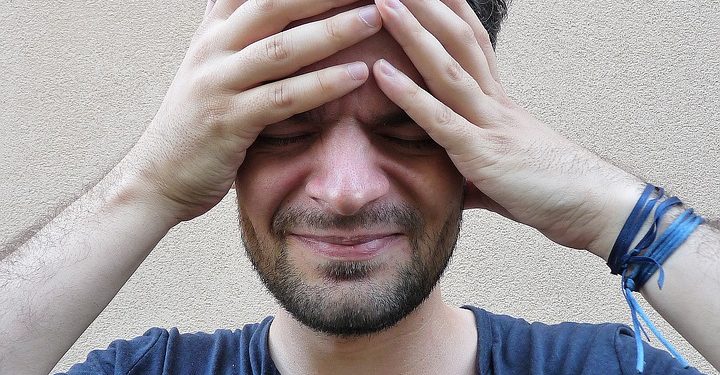by Kellie Pokrifka
Many of us with post-traumatic headache are willing to try just about anything to ease our pain. The problem is that we just do not know where to start. To help reduce the burden of this search, below are a few options that tend to be popular for treating post-traumatic headache. Before we get started, we need to discuss a few issues regarding these treatments.
One of the most pressing issues is the great disparity in getting access to these treatments. Many of the services cost enormous amounts of money and are considered alternative options that most insurance companies rarely cover. Accessibility is further limited by the location of these services and the lack of providers with adequate knowledge about brain injury.
Headache is a symptom of almost every issue that follows a brain injury. For example, University of Pittsburgh Medical Center’s (UPMC) health plan defined the six clinical trajectories or types of concussion, including cognitive/fatigue, vestibular, ocular, post-traumatic migraine, cervical, and anxiety/mood. Headache is a common symptom of every single one of these types. You can take steps to help relieve the headache and help it from further exacerbating other symptoms, but until you address the root issue, the headache is likely to reemerge.
In addition, the research supporting these treatments is often scarce and the amount of evidence supporting these treatments further diminishes when we limit it to the under-researched field of post-traumatic headache. This extends to traditional medications as well. In fact, not one drug has been approved by the FDA for the treatment of post-traumatic headache. The validity of these treatments is often controversial and the only way to truly tell if a treatment will work for you is to try it yourself. The same treatment that works well for one person will be useless to another. Every brain injury is unique and we will all respond differently. With that being said, here are a few options you may not have considered.
Acupuncture — A staple in Eastern medicine for thousands of years, acupuncture has recently surged in popularity in the West. A practitioner will insert thin needles into specific locations around the body to help rebalance one’s qi (chee.) This helps stimulate the nervous system and releases neuroendocrine messages. In one study, the U.S. military found acupuncture to be as effective as drug therapy in the prevention of migraine, tension-type, and neurovascular headaches.
Neuromodulation — Neuromodulation devices utilize electric or magnetic currents to initiate changes in the brain, similar to those which would occur after taking a drug designed for headache. A few of these devices, such as the Cefaly, gammaCore, and SpringTMS devices, are approved by the FDA for conditions like migraine, but none are yet specifically cleared for post-traumatic headaches.
Biofeedback —Biofeedback is a branch of therapies that use operant conditioning to help patients learn how to actively control certain bodily processes that usually function subconsciously. This includes aspects like heart rate, blood pressure, muscle tension, and even brain waves.
Cognitive Behavioral Therapy — No, CBT will not directly take away our pain. However, it will help teach us the skills to prevent the pain from getting worse. We learn how to control our bodies so that when the pain does hit, we remain calm and avoid setting off all of the processes like tensing our muscles and/or stressing, which drastically exacerbate the pain. We also learn how to cope with living with chronic pain.
Chromotherapy/ Light Therapy — Chromotherapy is the term used for a broad class of therapies that use light to help modify bodily responses. For PTH, light therapy can be administered through devices with lasers, colored glasses, and many other options. Depending upon the wavelengths of light, seen as different colors, this therapy can have control over sleep, mood, cognition, and pain.
Supplements — A variety of supplements are recommended for headache, again all with varying evidence reports. A sample of the most common supplements include omega-3 fish oil, magnesium, coenzyme Q10 (CoQ10), melatonin, ginkgo biloba, feverfew, riboflavin, butterbur, and several others. Following brain injury, many of us experience deficiencies in a multitude of nutrients. Discuss all supplements and nutritional deficits with your doctor before making any changes to your recovery plan.
Diet — Depending upon your source, any number of diets may help with brain injury recovery. Two of the most common diets used for TBI are anti-inflammatory diets and the ketogenic diet. Even without committing to a completely restrictive diet, aiming for healthy choices such eating more vegetables and fewer processed foods may benefit our recoveries. Discuss nutrition and any dietary suggestions with your doctor before making any changes to your recovery plan.
Float Tanks — Float tanks, or sensory deprivation chambers, are essentially oversized bathtubs saturated with magnesium sulfate, or epsom salts. Because of the high saturation levels, a person floats in the water without effort. The tanks are kept silent and pitch black, which further promotes the parasympathetic “rest and digest” state in our bodies. This helps switch our wired-and-tired brains out of sympathetic “fight, flight, or flee” mode. Our bodies also absorb the magnesium, helping reduce that nutritional deficit often experienced after TBI.
HBOT — Hyperbaric oxygen therapy consists of sitting in a ‘tank,’ breathing pure oxygen at a much higher than normal pressure. This process increases our blood oxygen levels, which is designed to help encourage both recovery and neuroplasticity.
Again, this list is in no way all-encompassing. The best way to find the right therapy for you is to do your own research starting with the above topics and consulting with your own doctor. There is no magic solution for recovery, and yet it is always possible. Believe in yourself and believe in your recovery.
Kellie is a TBI survivor and works as an intermediary between the experts and the patients with brain injuries.











